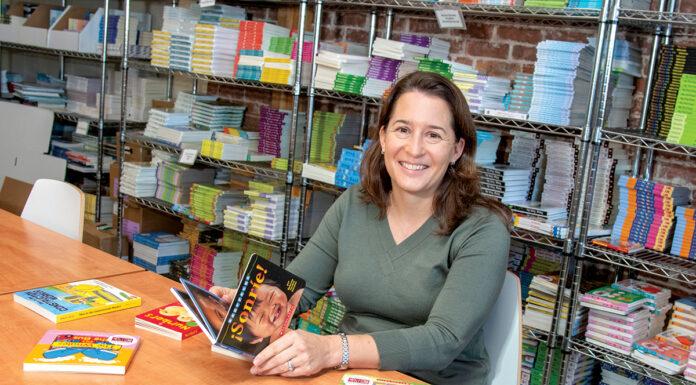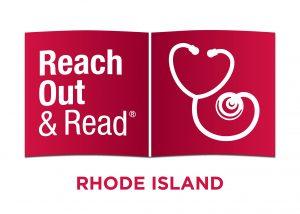
This month you can find Reach Out and Read RI’s Executive Director spotlighted on Providence Business News, 5 Questions With Aimee Falso.
Check out the PBN’s questions and Aimee’s responses below.
- What is the connection between a child’s literacy skills and their health outcomes?
We know that early literacy skills help set a child up for success in school, but we’ve also learned that strong family bonds and relationships with caring adults have an even greater impact on a child’s outcomes in general. A child’s brain is rapidly forming during their first few years of life and the more positive experiences they have, the more resilient they are to issues that adversely impact their physical and mental health. Studies have also shown that families who participate in the ROR program develop a stronger relationship with their child’s provider, attend well-care visits more regularly, and are more receptive to their providers advice.
2. How can a family get their child started with Reach out and Read?
Reach Out and Read is offered at 70 health care sites across RI and is available to all families at those sites with children from birth to five years old. If a child’s doctor is not currently one of our partnering providers, either the family or the doctor can reach out to us, and we can get them started. Reach Out and Read RI fundraises throughout the year through grants, corporate giving, an annual appeal, and an annual fundraiser so that there is no cost for health care sites or families to participate in the program. You can visit our website (www.rorri,org) if you would like to learn more information or donate.
3. As RORRI is approaching its 25th year, how do you hope to expand the program?
Our vision is to make RI a state where every child is read to every day, and we are working toward this goal by partnering with every medical provider who provides well-care visits for children under the age of 5. We currently reach about 70% of the children in RI in this age group. This scalable, public health intervention has been endorsed by the American Academy of Pediatrics as a critical piece of children’s healthcare. Additionally, we are always looking for other partners working with young children who can help us reinforce the early reading and early relational health message.
4. How has the program changed because of COVID-19?
The pandemic taught us a lot about the power of books in helping families get through challenging times. Not only is cuddling while reading a book a way to comfort and calm but the content can help both adults and children talk through some scary issues. Throughout the pandemic, providers asked us for books that dealt with feelings, emotions, and loss to use as tools to help families cope better.
5. RORRI has expanded into NICU clinics, how does reading benefit those with newborns?
We’re excited to now be partnering with the NICU follow-up clinic that supports children who graduate from the NICU through age 5. Many of these children are at greater risk for delayed language development so encouraging families to read aloud helps to improve the child’s outcomes and set a stronger foundation for success. Babies in the NICU also have fewer opportunities for language-rich interaction at a time when their brains are rapidly developing so an emphasis on reading is critical. Reading together also helps to diminish the stress that can be felt by the family in the NICU environment and can help build that bond that leads to better outcomes.
